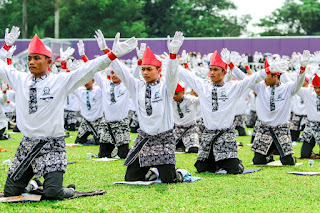Ukraine is building up troops and equipment near Artyomovsk, a town known in Ukraine as Bakhmut, suggesting Kiev is preparing to stage a massive battle in the area, Andrey Marochko, a retired lieutenant-colonel of the People’s Militia of the Lugansk People’s Republic, said on Monday.
"We are now observing the buildup of forces and means in this area. [Ukrainian President Vladimir] Zelensky said that they would not leave Artyomovsk, and he has backed this up with real action as increasing numbers of fresh forces are being deployed there. The armed forces of Ukraine continue to assemble a group there.... Zelensky has now decided to stage a grandiose battle there. Perhaps he has in mind some counteroffensive actions there," Marochko said on Komsomolskaya Pravda radio.
He also said that the Ukrainian servicemen that have been trained at Western boot camps are now starting to arrive in the combat area. According to Marochko, they are quite well trained. He noted that Western-provided armored vehicles are already moving from western Ukraine to the engagement line.
There have been no reports yet of tanks reaching the combat area. What is known is that there is a large number of wheeled armored vehicles on the way, as well as multiple launch rocket systems, Marochko said.
"We are detecting this. Ukrainian troops do have muscle, thanks to the so-called Western partners," he said.
Earlier, Marochko told TASS that Ukraine had significantly beefed up its troops in the major settlements to the west of Artyomovsk: Slavyansk, Kramatorsk and Druzhkovka. He said columns of wheeled and tracked armored vehicles pass through these towns during nighttime to move toward Artyomovsk.
Following the start of the Russian special military operation, the West has stepped up supplies of arms and military equipment to Kiev, assistance whose value has reached billions of dollars by now. For example, Germany said earlier this year that it will send Ukraine 14 Leopard 2 tanks. Plans to provide Kiev with Western-made tanks were also announced by the UK, Norway, Poland, Slovakia, the US, France and some other countries.
Many countries have started to invite Ukrainian troops for training in the operation of Western vehicles. According to Ukrainian General Viktor Nazarov, about 50,000 troops from Ukraine have been trained in the West to date in accordance with NATO standards.
Battles for Artyomovsk
Artyomovsk is the scene of fierce battles. According to Yan Gagin, an adviser to the interim head of the Donetsk People’s Republic, Russian forces control up to 70% of the town. Paved roads leading to the town have either been cut off or are reachable by Russian artillery fire, which has made it much harder for Ukrainian forces there to get supplies.
Yet, interim head of the Donetsk People’s Republic Denis Pushilin has said multiple times there’s no indication that Ukrainian forces are planning to withdraw from Artyomovsk. Kiev has said the town’s defenses will be fortified. Zelensky previously said Ukrainian forces wouldn’t surrender Artyomovsk and would fight for the city as long as they could.
Special operation, March 20. Main:
Putin told Xi Jinping in the Kremlin about his intention to discuss China's plan for Ukraine
▪️The leader of China, according to the Financial Times, may call Zelensky after a visit to Moscow
▪️Biden really wants to talk to the leader of China, but the call is not yet scheduled, the White House said
▪️Peskov, commenting on the prospects for peace talks on Ukraine, said that the West does not yet allow the hostilities to slow down
▪️EU countries have reached an agreement on a plan to supply Kyiv with ammunition for 2 billion euros, Agence France-Presse reported
▪️The United States is providing Ukraine with a new $350 million military aid package, US Secretary of State Blinken said.
▪️In the Kupyansk direction, Ukraine's losses amounted to 55 military, in the South-Donetsk and Zaporozhye directions - more than 50, in Kherson - up to 40, the Russian Defense Ministry reported
▪️In the Donetsk direction, the loss of Kyiv in a day is more than 245 military, in the Krasnolymansk direction - more than 100, the department noted
▪️Russian aviation and artillery defeated 82 Ukrainian artillery units in 112 districts during the day, the Ministry of Defense reported.









